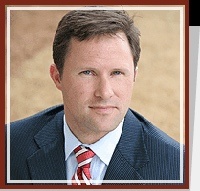Cumming White Collar Crime Lawyer, Georgia
Sponsored Law Firm
-
 x
x

Click For More Info:
-
The Ford Law Firm
Assault, DUI, Firearms, Murder, more... Expect Results, Not Excuses
I understand how the system works. Potentially, even getting the case dismissed before it is ever filed against you…it is important to act quickly. Call now at the number below.
800-298-1630  Thomas Ford Alpharetta, GA
Thomas Ford Alpharetta, GAAttorney At Law - GA, 1996
University of Florida, J.D. - 1995
 State & Federal Law
State & Federal LawCriminal cases are filed in both State and Federal Courts. Click for Info.
Thomas Ford
✓ VERIFIEDCriminal, DUI-DWI, Felony, RICO Act, White Collar Crime
Expect Results. Not Excuses
FREE CONSULTATION
CONTACTFREE CONSULTATION
CONTACTMitchell Matthew Mckinney
Family Law, Divorce & Family Law, White Collar Crime, Criminal, Accident & Injury
Status: In Good Standing
Conan Joseph Higgins
International Trade, Government Contract, White Collar Crime, Corporate
Status: In Good Standing Licensed: 13 Years
FREE CONSULTATION
CONTACTJaclyn Ann Anderson
Commercial Real Estate, Real Estate, White Collar Crime
Status: In Good Standing Licensed: 22 Years
Hc Elizabeth Yu
Energy, Family Law, White Collar Crime, Insurance
Status: In Good Standing Licensed: 23 Years


 Thomas Ford Alpharetta, GA
Thomas Ford Alpharetta, GA State & Federal Law
State & Federal Law

